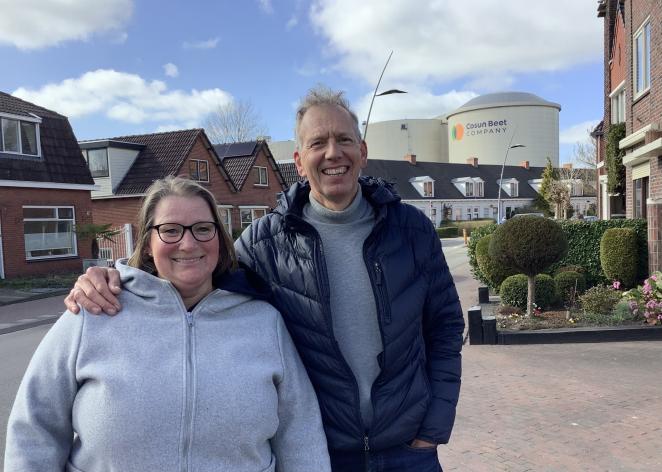On Tuesday 20 May, Speak Up will host its second webinar. During this webinar, the municipality of Groningen will talk about the citizens' budget they have established in a village in their municipality. The citizens' budget is called Sterk Hoogkerk (Strong Hoogkerk) and is a unique participation process in the village of Hoogkerk. Residents are given an annual budget of 300,000 for ten years and decide for themselves which projects will be realised with it.
In this interview Peter Wijnsma, civil servant of the municipality of Groningen, and Marian Hegeman, member of the neighbourhood council of Hoogkerk (VWH) explain how the citizens' budget came about and how it works. Want to learn more about how a citizen budget works and what it delivers? Join the webinar on the 20th of May! Check out the event here.
Can you tell us something about Hoogkerk? Why does Hoogkerk have this citizens’ budget?
Marian: Hoogkerk is a village and district in the west of the municipality of Groningen. Hoogkerk was an independent municipality until 1969, when it became part of the municipality of Groningen. The village has a strong character of its own and a rich history of self-government. This is the reason that Hoogkerk also has an active neighbourhood council (VWH).
Peter: ‘Hoogkerk also has a lot of direct influence on municipal decision-making. This is due to the very active neighbourhood council VWH that is intensively involved in the future of the neighbourhood. This is why we asked Hoogkerk to become a testing ground, since the municipality wanted to take citizen participation to a higher level. This led to the establishment of Sterk Hoogkerk, an initiative that focuses on an innovative and in-depth way of cooperation between residents, municipality and other stakeholders.
Marian: We as VWH were keen to participate, but not with a one-year experiment. We wanted a sustainable experiment that can grow and develop over a longer period of time. And in doing so, we wanted good support. This could be arranged. The experiment runs for ten years and in the beginning we were supervised by an external project leader. When she stepped back, I stepped forward. That's how I got into it. When we started the citizens' budget, we first conducted research. What exactly do we want with this experiment? What suits us? And how can we optimize citizen participation? We also looked closely at the history of Hoogkerk.
How did you get inspired for this?
Peter: We looked for an appropriate method, something that does justice to the involvement of our residents. That's how we came across Antwerp, where they had already been active for seven years with a citizens' budget: District of Antwerp. The wild plan soon arose to take a look there. With a bus full of civil servants, local councilors, residents and members of VWH, we set off. During the long drive, everyone was a bit cautious, but once we arrived, the mood completely changed. After that 2-day trip, everyone was so enthusiastic that we unanimously said: ‘this is what we are going to do’. That trip really ignited something.
Marian: What we saw and heard in Antwerp was really an eye-opener. We used to think that voting in elections is sufficient to do to partake in local decision making. People vote, a winner emerges and that's it. However, in Antwerp, they said: ‘Every opinion matters’. Projects there were chosen based on dialogue. When you have an idea for a project, you have to actively engage to convince others of your dream. That appealed to us enormously. We were allowed to adopt the roadmaps from Antwerp. They had come up with extra ground rules over time. We were also allowed to adopt those, but we deliberately did not because we wanted to go through our own learning process.
What did the citizen budget accomplish in the past two years?
Marian: So far, at all the meetings we have organized we had an average attendance of 100 to 120 participants. In addition, people have voted online. In the beginning, nobody knew Sterk Hoogkerk but now 60 percent of the residents know what it is. We are now working on the third edition, an edition always lasts two years. The first year you collect ideas that are implemented the second year. This year, for the first time, the budget can also be distributed digitally. However, during the webinar you will hear what Sterk Hoogkerk has achieved so far and how it exactly works! And of course, we are also still learning, so our lessons learned will definitely be discussed. Hope to see you on the 20th of May!

Marian Hegeman (left) & Peter Wijnsma (right) in front of the iconic towers of the suger beet plant in Hoogkerk
